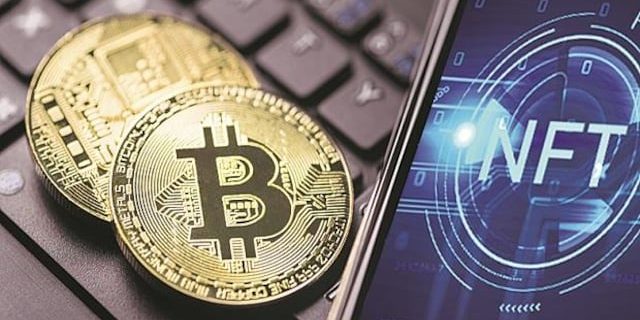India may soon have a greater clarity on regulation of crypto assets as the government has stepped up efforts in that direction.
The recent meeting of the Financial Stability and Development Council (FSDC), chaired by Union Finance Minister Nirmala Sitharaman, impressed upon the members the need for a clear consensus on the legality of cryptocurrencies. The message was that regulators must fast-track the initiative.
The Council discussed at length whether to legalise or ban crypto assets, according to two people privy to the discussions.
“The status of crypto assets was among the key agenda discussed in the Council meeting. It was of the view that all ambiguities should be put to rest soon,” according to a top official in the know.
Discussions are learnt to have veered around two key points—views on a complete ban and who should be the regulator if the government decides to legalise crypto assets. Other options such as a partial ban and allowing a select few crypto products also came up, one of the officials said.
The meeting, attended by financial sector regulators and senior officials, deliberated on the concern over being non-compliant with the Financial Action Task Force (FATF) guidelines. FATF standards ensure a co-ordinated global response to prevent organised crime, corruption and terrorism as well as help authorities go after the money generated from such crimes.
India, like many other countries, is currently not FATF-compliant on crypto assets. FATF requires countries to have a clear stand on legalising or banning crypto assets.
ALSO READ: Crypto wrap: What to expect from the market after Ethereum's ‘Merge'
Views are divided within the government departments on whether crypto currencies should be banned. The Reserve Bank of India, however, has been in favour of a complete ban on crypto assets on account of the risk associated with it.
The FM had recently raised the matter during a meeting with the International Monetary Fund (IMF) managing director Kristalina Georgieva in New Delhi. The minister had said that IMF should play a lead role regarding the regulation of cryptocurrencies and ensure a globally coordinated and synchronised approach on the issue.
Back in April, during the Spring meetings of the IMF and World Bank, Sitharaman had batted for a global framework to regulate cryptocurrencies, while also warning about the potential risks that they pose in connection with terror financing and money laundering.
Subsequently, the Department of Economic Affairs in the finance ministry had said that the consultation paper on virtual digital assets was almost ready for release. BS could not independently ascertain whether the white paper had been submitted.
In December 2021, during the winter session of Parliament, the government had listed the Cryptocurrency and Regulation of Official Digital Currency Bill, 2021, to provide a framework for digital currencies. The bill was never introduced as some sections within the government felt the need for detailed discussions on the subject.
In the Union budget for 2022-23, the government had defined crypto as virtual digital assets and also imposed a 30 per cent tax on gains made from such transactions. It also proposed 1 per cent tax deducted at source on all such transactions effective July 1, 2022. The government had clarified that taxation did not imply it was legalising virtual assets.
Looking for clarity
- FSDC meeting discusses progress on the legality issue of crypto assets
- The Council wants a final call on whether to legalise or ban such assets; seeks collaborative decision
- Raises concerns over being non-compliant with FATF
- Discusses the inputs and suggestions received on crypto






